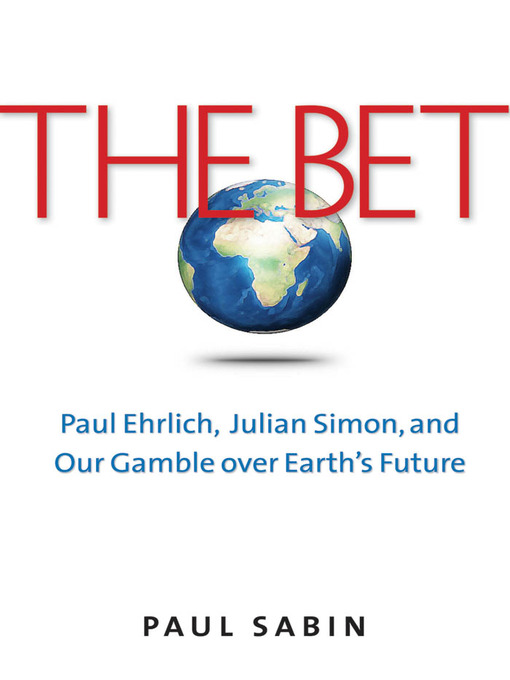
The Bet
Paul Ehrlich, Julian Simon, and Our Gamble over Earth's Future
کتاب های مرتبط
- اطلاعات
- نقد و بررسی
- دیدگاه کاربران
نقد و بررسی

Starred review from August 19, 2013
Using a highly publicized thousand-dollar wager made between two scholars as a narrative framework, this gem of a book elucidates the extreme polarity between those who believe human ingenuity can solve the world's problems and those who foresee imminent doom. Sabin (Crude Politics) cleverly traces the ideological extremes through the careers of Paul Ehrlich, known for his warnings about explosive population growth, and his lesser known adversary Julian Simon, who advocated that technological advancement and flexible markets would resolve threats of overpopulation. Sabin shows the evolution of both arguments through various presidencies. The Carter administration leaned toward Ehrlich's apocalyptic point of view; whereas Reagan thought Simon's theories fit his own, especially in expanded energy production. The contrast between Al Gore and George W. Bush reflects the deepening polarization in the United States over environmental issues. Sabin offers a reasoned summary of the strengths and weaknesses on both sides, but ultimately he is interested in showing "how intelligent people are drawn to vilify their opponents and to reduce the issue that they care about to stark and divisive terms." To this end, Sabin provides a fascinating and highly readable archaeology of political science in America.

October 15, 2013
In 1980 Stanford University biologist Paul R. Ehrlich, author of the best-selling The Population Bomb, agreed to bet libertarian University of Illinois economist Julian Simon on a prediction as to the price of five metals a decade later. Sabin (history, Yale Univ.; Crude Politics: The California Oil Market, 1900-1940) traces their lives against a background of shifting environmental awareness and policies. Ehrlich gained fame through best-selling books and media appearances, discussing the dangers of human overpopulation and overconsumption (he thought massive demand for metals would raise their prices). He and Simon exchanged broadsides in academic papers, editorials, and books. Simon won their public bet--the price of metals sank. Few of Ehrlich's feared shortages and famines have occurred. In the longer term, though, he may prove to be right. VERDICT Sabin's approach to our debates over population growth through discussing the Simon-Ehrlich wager is accessible and illuminating. Those interested in addressing our global tipping points through this historical perspective will enjoy this work.--David R. Conn, formerly with Surrey Libs., BC
Copyright 2013 Library Journal, LLC Used with permission.

























دیدگاه کاربران